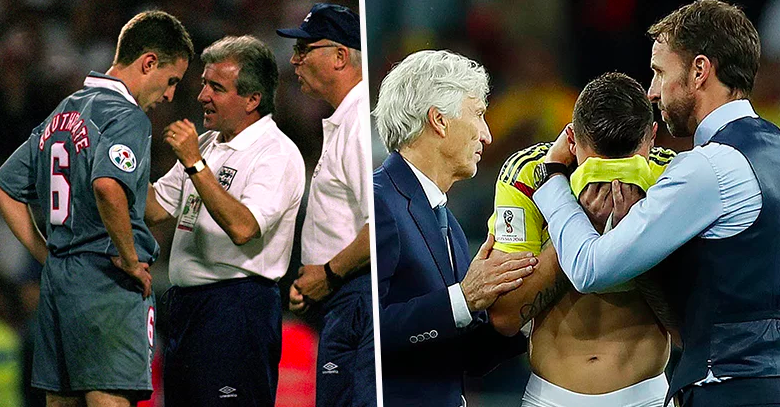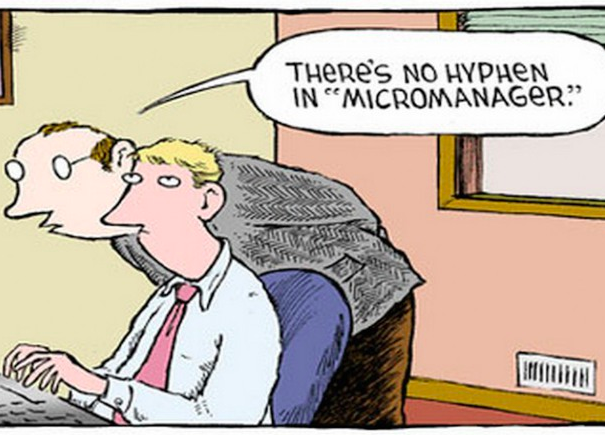July 5, 2018
Pastors, Empower Your Congregation: #GarethSouthgateWould
England football manager Gareth Southgate is the flavour of the month across social media (flavour of the minute surely!).
Lampooned at Euro 96 when his missed penalty saw England bow out against Germany in the semi-finals, he was lauded two nights ago when his new-look England team held their nerve, won a penalty shoot out against Colombia, booking a quarter final spot in the process.
Southgate then made his way across to console Colombia’s unfortunate Mateus Uribe to whom he handed the “missed-crucial-penalty-in-crucial-game” baton.

A lot changes in 22 years
Despite the pain of that miss all those years ago, Southgate was able to shake off his mistake, even lampooning himself in a potato crisp advert a few years later.
Uribe may not be so fortunate, as he quickly found himself the subject of vile death threats, 24 years to the day that is fellow countryman and national player, Andreas Escobar, was gunned down for scoring an own-goal that sent his country out of the 1994 World Cup.
Southgate’s compassion has gone global, as has this hashtag #GarethSouthgateWould, which has produced hilarious Twitter responses:
It started with this:

And was quickly followed with the likes of this:

You get the idea.
My personal favourite:

Oh, and that reminds me, special thanks to all those who proof read my blog posts and get back to me with constructive feedback within the hour.
Here’s what Gareth Southgate would do if he were your church minister:

Why do I say that? Because the key to Gareth Southgate’s success, the reason he has turned England’s flagging fortunes around these past years is because of his philosophy that the role of the coach is to empower the players to take responsibility for their play, rather than simply lord it over them and dictate to them.
Writing in The Times, Matthew Syed says that Southgate has eschewed the “command and control” method of leading that was popularised by Industrial Revolution thinkers such as Frederick Winslow Taylor who, in 1856, introduced what he called the principles of “scientific management” to the production lines of Europe.
He famously stated:
In our scheme, we do not ask for the initiative of our men. We do not want any initiative. All we want of them is to obey the orders we give them, do what we say, and do it quick….Every day, year in and year out, each man should ask himself, over and over again, two questions: First, ‘What is the name of the man I am now working for?’ . . . then ‘What does this man want me to do?’ . . . The most important idea should be that of serving the man who is over you his way, not yours.
That philosophy bled into just about everything, including the English football team, which produced exactly what would be expected from such a philosophy: scared, insecure players who had no idea what to do when something happened that they had not foreseen, like an early goal scored against them, or a team that rough-houses them like Colombia did on Tuesday night.
As Syed observes:
[this philosophy] also had an Achilles’ heel that became more noticeable in rapidly changing contexts. If workers simply do what they are told, what happens when the world changes in a way management did not anticipate?
It’s been the ability of Southgate to empower his players for rapid discontinuous change, that has changed the team.
Helmuth von Moltke the Elder, the 19th-century German general, put it like this: “No battle plan survives first contact with the enemy.” And no England team seems to have done so either – until now.
Interestingly it was in Germany – East Germany – where the “command and control” method proved most wanting. Shortly after reunification, the West Germans discovered that the huge pool of man and woman power that the increased population had promised, didn’t eventuate.
The reason? In a totalitarian state, where “command and control”, and “the man” takes on an even more sinister edge, no one was capable of taking initiative or thinking for themselves. Their hesitancy to do so had to be laundered out of them over time. Only then were German industries able to employ former Communist bloc workers in a way that would help their businesses and the economy.
Perhaps this is a long way of saying it, but the church could use a few more Gareth Southgates and a few less Frederick Winslow Taylors. For rapid discontinuous change is the water we swim in.
We need more leaders who, through dint of their awareness of their own weaknesses, and in seeking to help others through theirs, refuse to operate “command and control”, and instead work hard at empowering their people and the faithful and creative opportunities they bring.
Of course you can see, in these brittle times why “command and control” could be attractive for church leaders who want to make something of themselves and/or their church.
Command and control keeps people hedged in. Yet promises to stymy the much lamented problem of rampant individualism. It allows “the product” to be reproduced at a rate of knots and gives it a uniform look that can be transplanted.
But if you widen it out to the everyday lives of Christians, it is a fairly useless process, both within the church body, and in everyday life for the Christian.
Within the church it stifles the diversity available through God-given gifts; it creates dependency and co-dependency. And most of all in these times of rapid, discontinuous change, it creates nervous “Eastern bloc” type congregants who are invariably reactive and rarely proactive.
It results in the whisper campaigns of those who are not happy, but often have no way to articulate it. Of course whisper campaigns start for less holy reasons as well, but let’s be careful that we know how to distinguish between the two before we go on a purge or crusade.
And outside the church? When the manager can’t play the game for you, and you’ve crossed the white line? All the frantic arm-waving in the world won’t create the instinctual gospel response that your people need when they are living the complexities of a post-Christian world in the home, at work, in education, among friends, and on-line.
Another great football manager, Pep Guardolia, of English Premier League champions, Manchester City, put it like this:
Once the referee has blown the whistle, I stand there and wave my hands, but it is always down to the players. When Raheem Sterling gets the ball, do you think my info is in his head? No, because he only has a split second to decide what to do and a million possibilities. I am here to help, but football belongs to the players.
In a recent chat with Matthew Syed, Southgate himself said that his deepest fear was not delegating power to his team but infantilising them:
If you take responsibility away from players, they are likely to go missing when it really matters,” he said. “It may feel good as a coach to have all the power, but it betrays the team.
And that’s perhaps where some church leaders can often let themselves – and their people – down. The system they create infantilises their people, rendering them unable to make mature decisions for themselves (and occasionally not wanting them to).
Yes it does – or can – feel good to have all the power if you are a particularly brittle leader, but it does betray the team.
A team full of babies, always uncertain, always looking across to the bench, will neither succeed, nor grow into the “unconscious competence” required of mature Christians walking in an increasingly complex world. By its very nature, you can’t instil self-discipline in someone, and if you try all you will do is micro-manage them.

The role of the church leader is to empower the people under their care (note: not their command), because battle plans that are not deeply embedded as instinctive practice – or as James Smith calls it “liturgies that trump other liturgies” will not survive first contact with the enemy. So in a sense, Pep Guardolia is not quite right: his information is in Sterling’s head, it’s just at one level deeper down than command and control.
And if that’s all a little vague or unbiblical sounding for you, how about this from Ephesians:
11 So Christ himself gave the apostles, the prophets, the evangelists, the pastors and teachers, 12 to equip his people for works of service, so that the body of Christ may be built up 13 until we all reach unity in the faith and in the knowledge of the Son of God and become mature, attaining to the whole measure of the fullness of Christ.
14 Then we will no longer be infants, tossed back and forth by the waves, and blown here and there by every wind of teaching and by the cunning and craftiness of people in their deceitful scheming. 15 Instead, speaking the truth in love, we will grow to become in every respect the mature body of him who is the head, that is, Christ. 16 From him the whole body, joined and held together by every supporting ligament, grows and builds itself up in love, as each part does its work.
That’s the pattern of on-flowing responsible leadership the church should take. We should take. And if he were a pastor instead of the England football manager, then Gareth Southgate would.
Written by
There is no guarantee that Jesus will return in our desired timeframe. Yet we have no reason to be anxious, because even if the timeframe is not guaranteed, the outcome is! We don’t have to waste energy being anxious; we can put it to better use.
Stephen McAlpine – futureproof
Stay in the know
Receive content updates, new blog articles and upcoming events all to your inbox.


